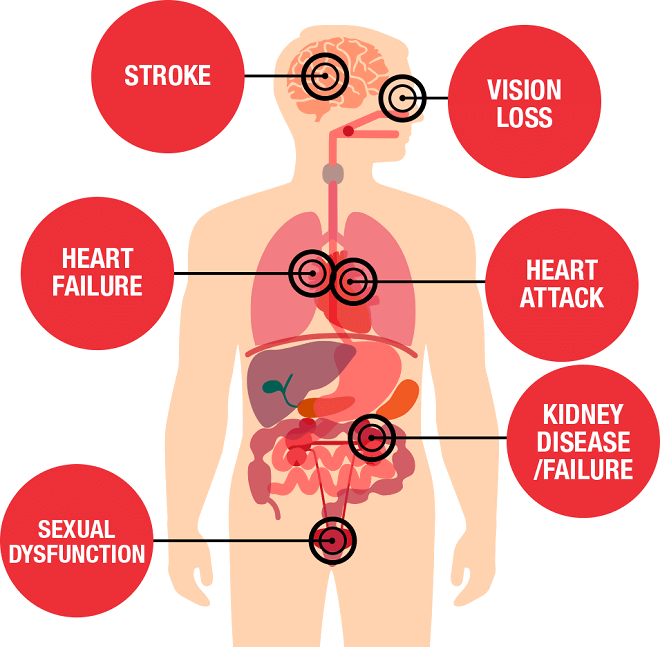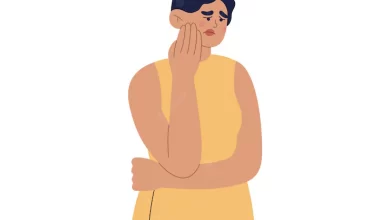How To Fix Worn-Down Teeth [Dentists’ Guide]
![How To Fix Worn-Down Teeth [Dentists' Guide] 1 How To Fix Worn Down Teeth Featured Image - Mr. BD Guide](https://mrbdguide.com/wp-content/uploads/2023/05/How-To-Fix-Worn-Down-Teeth-Featured-Image-Mr.-BD-Guide.jpg)
Are you looking for effective solutions on how to fix worn-down teeth? Clock Tower Dentistry in Palatine, IL is here to provide the answers you need. Worn teeth can have a significant impact on your oral health and overall well-being, but rest assured that there are effective treatments available to restore and repair them.
At Clock Tower Dentistry, we specialize in providing high-quality dental care, with dental crowns being one of our popular options. Our team of experienced professionals is dedicated to ensuring your dental health and satisfaction. We offer a comprehensive range of services, including dental crowns, implants, and orthodontics, to address all aspects of fixing worn-down teeth.
When you choose Clock Tower Dentistry, you can trust that your dental needs will be met with the utmost care and expertise. We are committed to delivering exceptional dental care to our patients, and we strive to exceed your expectations.
We understand the importance of convenience and flexibility when it comes to scheduling dental appointments. At Clock Tower Dentistry, we work with you to find the most suitable slot, whether it’s an early morning appointment or a time that fits your work commitments. Your dental health is our priority, and we want to make your experience as seamless as possible.
Don’t let worn-down teeth affect your smile and confidence any longer. Contact Clock Tower Dentistry today to schedule an appointment and discover the effective solutions we have to fix your worn-down teeth. Let us help you achieve optimal dental health and regain your beautiful smile.
Experience their exceptional services firsthand and book an appointment today to discover how they can help fix your worn-down teeth. To learn more about Clock Tower Dentistry and how their services can effectively fix worn-down teeth, visit their website.
Step-By-Step Guide on How To Fix Worn-Down Teeth
Are you experiencing the discomfort and frustration of worn-down teeth? If so, you’re not alone. Worn-down teeth can affect both the appearance of your smile and the functionality of your bite. Fortunately, there are effective solutions available to help you fix worn-down teeth and restore your dental health.
In this step-by-step guide on how to fix worn-down teeth, we will walk you through the process of addressing this common dental issue. From consultation to treatment options and ongoing care, we will provide you with valuable insights and expert recommendations.
By following this guide, you can gain a comprehensive understanding of the steps involved in fixing worn-down teeth and take proactive measures towards achieving a healthy, beautiful smile. So let’s dive in and explore the path to restoring your worn-down teeth, one step at a time.
Step 1: Consultation with a Dentist
Schedule an appointment with a trusted dentist who specializes in restorative dentistry. During the consultation, discuss your concerns about worn-down teeth and provide any relevant medical history or information.
Step 2: Comprehensive Dental Examination
Undergo a comprehensive dental examination, including X-rays and dental impressions. This will help the dentist assess the extent of tooth wear, identify any underlying issues, and determine the most suitable treatment options.
Step 3: Treatment Planning
Based on the examination results, the dentist will create a customized treatment plan tailored to your specific needs. This plan may involve one or a combination of dental procedures to repair and restore your worn-down teeth.
Step 4: Dental Crowns
Dental crowns are a popular option for fixing worn-down teeth. They provide both aesthetic improvement and functional restoration. During this procedure, the dentist will reshape the affected teeth, take impressions, and create custom-made crowns to cover and protect the worn surfaces.
Step 5: Dental Bonding
Dental bonding is an alternative treatment that involves applying a tooth-coloured resin material to the worn areas of the teeth. The resin is shaped and polished to match the natural tooth appearance, restoring the tooth structure and enhancing its strength.
Step 6: Porcelain Veneers
For more severe cases of tooth wear, porcelain veneers may be recommended. These thin, custom-made shells are bonded to the front surfaces of the teeth to improve their appearance and provide added protection.
Step 7: Tooth Reshaping
In some instances, minor tooth reshaping may be sufficient to fix worn-down teeth. This procedure involves removing a small amount of enamel to create a more even tooth surface and restore proper bite alignment.
Step 8: Follow-up and Maintenance
After the dental procedures, follow your dentist’s post-treatment instructions carefully. Attend regular check-ups to monitor the condition of your teeth and ensure their long-term health. Maintain good oral hygiene practices, including regular brushing, flossing, and dental cleanings.
Step 9: Preventive Measures
To prevent further tooth wear, address any underlying causes. This may involve wearing a custom-made nightguard to protect against bruxism (teeth grinding) and avoiding hard or acidic foods and beverages. Adopt proper brushing techniques and use a soft-bristled toothbrush.
Step 10: Ongoing Dental Care
Continue regular dental check-ups and cleanings to maintain optimal oral health. Your dentist will monitor the condition of your teeth, identify any signs of wear, and provide necessary treatments or adjustments as needed.
Remember, the specific steps and procedures involved in fixing worn-down teeth may vary depending on individual circumstances. It’s essential to consult with a qualified dentist who can assess your unique situation and recommend the most appropriate treatment plan for you.
Causes and Types of Worn Down Teeth
When it comes to addressing worn-down teeth, understanding the causes and types is crucial. Worn-down teeth can have a significant impact on the appearance and functionality of your smile.
By delving into the underlying factors and exploring the different types of dental wear patterns, you can empower yourself with the knowledge needed to effectively address this issue.
Dental Erosion: Causes and Effects
Dental erosion is a common cause of worn-down teeth and can significantly impact tooth structure and function. This subsection will provide detailed information about the causes of erosion, including acidic foods, beverages, and stomach acids that erode tooth enamel.
By understanding the effects of dental erosion, you can learn how to fix worn-down teeth and maintain proper oral health to prevent further wear and damage.
Implementing preventive measures and seeking appropriate treatments can help reduce the need for extensive repairs and minimize worn teeth repair costs.
Bruxism: The Impact of Teeth Grinding and Clenching
Bruxism, characterized by teeth grinding and clenching, is another leading cause of worn-down teeth. This subsection will delve into the underlying causes of bruxism, such as stress and anxiety, and discuss effective treatment options.
Whether you’re looking to fix worn-down front teeth or address teeth grinding repair costs, understanding how to manage and treat bruxism is essential for preserving tooth structure and preventing further wear.
From stress management techniques to medications and muscle relaxants, a comprehensive approach can help address the impact of bruxism.
Malocclusion and Tooth Misalignment: A Contributing Factor
Malocclusion and tooth misalignment can contribute to uneven tooth wear, including the wearing down of bottom front teeth. This subsection will explore the impact of dental misalignment on tooth wear and discuss treatment options, such as orthodontic interventions, to restore proper bite alignment.
By addressing malocclusion and misalignment, individuals can effectively fix worn-down teeth, prevent further wear, and reduce the risk of associated complications.
Aggressive Brushing Habits: Understanding the Potential Damage
Improper brushing techniques, including the use of hard-bristled toothbrushes, can lead to tooth abrasion and wear. This subsection highlights the importance of gentle brushing techniques and proper oral hygiene practices to prevent unnecessary damage to tooth enamel.
By adopting correct brushing habits, individuals can mitigate potential damage and minimize the need for extensive repairs or treatments to fix worn-down teeth.
Dietary Factors: Acidic Foods and Sugary Beverages
Dietary choices play a significant role in tooth wear. This subsection discusses the impact of consuming acidic foods and sugary beverages on dental health.
Emphasizing the need for moderation and proper oral hygiene practices, individuals can make informed choices to prevent the wearing away of front teeth and reduce the risk of teeth being worn down to gums.
By understanding the effects of dietary factors, individuals can minimize the need for extensive treatment and maintain optimal dental health.
The Role of Age and Natural Tooth Wear
Age-related wear is a natural process that occurs over time. This subsection explains how tooth wear progresses with age and the potential impact it can have on oral health.
By recognizing age-related tooth wear, individuals can take preventive measures and seek appropriate treatments to manage wear and maintain dental health.
Understanding the role of age in tooth wear is vital for those looking to fix worn-down teeth and prevent further damage.
Identifying Different Types of Dental Wear Patterns
This subsection explores various dental wear patterns, including erosion, attrition, and abrasion. By identifying these patterns, individuals can better understand the specific type of tooth wear they may be experiencing.
This knowledge is valuable in seeking appropriate treatment options to fix worn-down teeth and prevent further damage. By identifying dental wear patterns, individuals can take proactive steps to address their specific needs and optimize their oral health.
![How To Fix Worn-Down Teeth [Dentists' Guide] 2 How To Fix Worn Down Teeth Post Image - Mr. BD Guide](https://mrbdguide.com/wp-content/uploads/2023/05/How-To-Fix-Worn-Down-Teeth-Post-Image-Mr.-BD-Guide.jpg)
Worn Down Teeth Symptoms
Determining whether your teeth are worn down can be crucial in addressing the issue and seeking appropriate treatment. Recognizing the symptoms of tooth wear is essential for early intervention and preventing further damage. Here are some common signs that may indicate worn-down teeth:
Increased Tooth Sensitivity
Worn-down teeth often exhibit heightened sensitivity to hot, cold, sweet, or acidic foods and beverages. If you experience discomfort or pain when consuming certain substances, it could be a symptom of tooth wear.
Protective Enamel Loss
The outer layer of your teeth, called enamel, serves as a protective barrier. With wear, the enamel may gradually erode, leaving the underlying dentin exposed. This loss of enamel can lead to increased tooth sensitivity and changes in tooth appearance.
Changes in the Appearance of Teeth
Worn-down teeth may appear shorter, flattened, or uneven. The biting edges of the teeth may become worn, and there may be visible signs of damage, such as cracks or chips. Changes in tooth shape and contour can be indicative of tooth wear.
Chipped Teeth
Worn-down teeth are prone to chipping or fracturing, increasing the risk of dental damage. If you observe small chips or rough edges on your teeth, it may indicate wear and tear. Prompt intervention is crucial to address this issue. Treatment options, such as dental bonding or crowns, can restore the appearance and function of chipped teeth, safeguarding dental health.
Translucent Teeth
Tooth enamel thinning from wear can cause teeth to appear translucent at the edges, resulting in a worn-down or glassy appearance. This aesthetic change can impact your smile. Consulting a dental professional is essential to assess enamel loss, determine the underlying causes, and provide suitable treatment.
Dental bonding, veneers, or crowns may be recommended to improve the appearance and protect translucent teeth. Addressing the root causes of tooth wear is vital for long-term oral health.
Treatments for Worn Down Teeth
Dealing with worn-down teeth can be a source of discomfort, but the good news is that there are effective treatment options available. Let’s explore these various approaches to restoring and fixing worn-down teeth, helping you regain optimal oral health and a confident smile.
Dental Crowns
Dental crowns are a very common restorative treatment option for teeth that are severely worn down. Simply put, if you are missing a significant portion of your tooth structure, chances are you’ll need a dental crown.
This procedure involves caps being placed upon the entire tooth, which helps in improving the functionality and appearance of the tooth.
Dental Bonding
Dental bonding is another common way to go about treating worn-down teeth. This procedure involves using the same composite resin used for filling cavities. Bonding is used to cover imperfections like discolourations and cracks in the enamel, and the soft, tooth-coloured material used in composite bonding is perfect for the purpose.
Dental bonding can also be a way to reshape teeth that are misshapen or chipped due to various reasons. It’s also a very practical and quick form of treatment and can be done without anaesthesia in only one short trip to the dentist.
Porcelain Veneers
Porcelain veneers are a great option when it comes to treatments for worn-down teeth. They take excellent care of both functionality and aesthetics, as they are durable and stain-resistant and can correct worn-down teeth along with other imperfections.
They can also functionally change the shape of your teeth, as well as lengthen them. Additionally, you can choose to have your porcelain veneers match your teeth, or you can decide to make them whiter than your teeth.
Tooth Reshaping
Similarly to tooth bonding, tooth reshaping can also change the shape of your teeth, to a more advanced degree. By giving your teeth a more curved shape, tooth reshaping helps with restoring a striking and youthful smile. It is also a rather conservative procedure due to its simplicity, and it doesn’t require any anaesthesia.
Complications of Worn Down Teeth
As is the case with many other dental problems, if worn-down teeth are left untreated, complications can occur. These include the following:
- Infection
- Heightened tooth sensitivity
- Tooth restoration issues
- Problems with fillings
- Receding gums
- Back, neck, and jaw pain
- Frequent headaches
- Tooth decay
- Difficulties with chewing and biting
- Yellowed teeth
- More frequent cracks and chips
We’ve all heard the quote, ‘Prevention is the best medicine,’ and as cliche as it might be, it definitely rings true. Luckily, preventing your teeth from wearing down is actually quite easy, granted you’re familiar with habits that lead to worn down teeth in the first place.
Conclusion
To fix worn-down teeth, it’s important to make some key changes. Minimize fizzy drinks and acidic foods, opting for water instead. Avoid aggressive brushing, chewing on hard objects, and seek treatment for bruxism.
Professional dental care can repair chipped or worn-down front teeth, and the cost of treatment may vary. If covered by the NHS, explore available worn teeth treatment options. By addressing the causes and seeking appropriate care, you can restore your smile and maintain optimal oral health.




